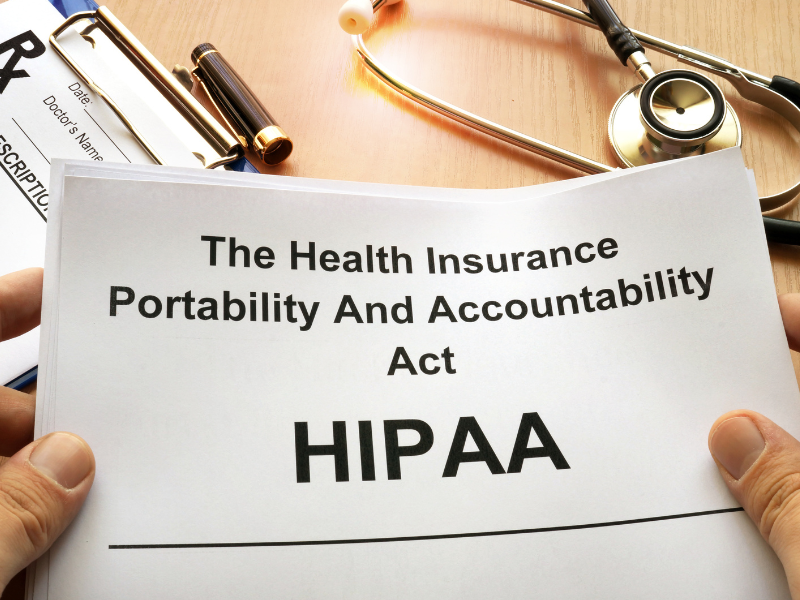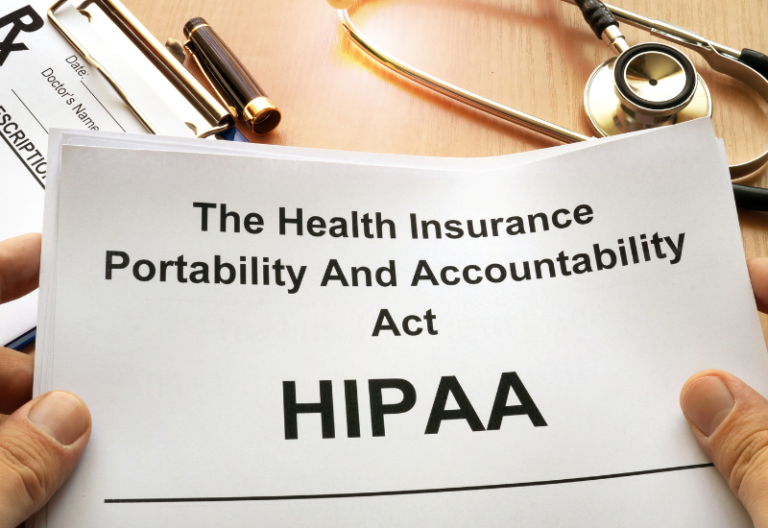Ensuring full compliance with the Health Insurance Portability and Accountability Act (HIPAA) remains a challenge for many covered entities. For one, it requires thorough understanding, intensive training, and time. Your organization must also invest in secure technology solutions to continuously safeguard PHI.
Despite all these, your organization could still be the subject of an investigation process. It could be due to a data breach caused by employee snooping or an unforeseen ransomware attack.
Getting acquainted with the HIPAA violation investigation process helps you prepare for the actual scenario in case it happens.
Table of Contents

What Triggers a HIPAA Violation Investigation?
When a covered entity or business associate fails to comply with HIPAA rules, the Department of Health & Human Services (HHS) Office for Civil Rights (OCR) will proceed with the investigation. Upon receiving a privacy complaint, the OCR will start an audit after evaluating several factors, such as the nature of the breach, impact, number of individuals affected, and the actions taken.
Steps Involved in the HIPAA Violation Investigation Process
A Chief Privacy Officer (CPO) will thoroughly investigate shortly after reviewing the complaint. Here’s an overview of what generally occurs during a HIPAA investigation:
1. Complaint acknowledgment
To make it official, the Privacy Officer will log the date stamp and complaint to establish a record. Then, the patient who sent the complaint will receive a written acknowledgment as a confirmation.
2. Determining the breach’s nature and extent
The CPO will assess the incident and what kind of breach has occurred. This includes identifying the number of individuals involved and whether their PHI was compromised. If there is no clear indication of violation, the privacy officer will close the complaint and update the complainant.
3. Engaging with the responsible parties
However, if a violation is confirmed, the CPO will communicate the problem with the liable parties and obtain their statements. They will forward the complaint to the covered entity or business associate involved. Throughout the process, the CPO will inform the complainant regarding the actions taken.
4. Identifying the violation’s root cause
The CPO will need more time to understand and determine the cause of the HIPAA violation. Employee negligence is one of the most common reasons for a data breach. It can also be accidental or intentional. Regardless, the CPO will meticulously review the complaint to identify whether the involved parties committed improper disclosure or disposal of protected health information (PHI).
5. Mitigating future and similar incidents
Once the CPO has identified the root cause of the breach, they will send a resolution agreement to the parties involved indicating a corrective action plan to resolve the incident. Covered entities must update their security policies and procedures to address gaps and vulnerabilities. The human resource department will also look into the investigation results to develop appropriate disciplinary measures.
6. Retraining employees
To avoid similar incidents in the future, the CPO will require mandatory training sessions for all the employees of responsible entities. Doing so will ensure better compliance and awareness of the HIPAA rules and regulations.

Potential Consequences of HIPAA Violations
Failure to comply with the HIPAA rules has significant implications. Below are some possible punishments a covered entity or business associate may face for violating the guidelines set by HIPAA.
Civil or criminal charges
Depending on the extent of the violation, covered entities may face civil or criminal penalties. If the breach was accidental, the civil penalty could range from $127 per violation to $63,973. One example of this is failing to implement security safeguards due to ignorance of HIPAA regulations.
Meanwhile, criminal charges are imposed on individuals or organizations that intentionally sell PHI (i.e., black market PHI). Violators may face up to 10 years of jail time and a maximum penalty of $1,919,173.
Damage to reputation
On top of the hefty fines and jail time, covered entities may lose their patient’s trust and loyalty. If the breach was severe and affected 500 or more individuals, the OCR will place your organization’s name on the HIPAA Wall of Shame. It displays all violations under investigation within the last two years.
Loss of professional license
The OCR may decide to revoke their professional license for severe HIPAA violations and repeat offenders. Without HIPAA accreditation, you won’t be able to offer patient care services. Some hospitals and businesses could even be forced to shut their operations entirely.

How to Prevent HIPAA Violations and Stay Compliant
If you want to stay out of OCR’s list of HIPAA offenders, here are some tips to prevent data breaches and noncompliance.
Stay updated with HIPAA regulations
Regularly revise policies and align them with the best practices for HIPAA compliance. This will help strengthen your security measures and procedures to prevent hackers and other malicious actors from accessing and stealing confidential patient data.
Encourage patients to exercise their rights
Under HIPAA, patients can request access to their protected health information (PHI). Both your employees and patients should be aware of this rule. Allowing patients access to their PHI gives them better control over how they want their information to be shared, used, or disclosed.
Perform comprehensive risk analyses and audits
Comprehensive risk assessments can help your organization identify potential system vulnerabilities. By doing so, you can revise your policies and implement stricter security measures to minimize the possibility of a breach.
Educate staff about HIPAA compliance
Have your staff undergo regular HIPAA awareness and compliance training. When your employees are well-equipped with the necessary knowledge and skills, they can quickly determine security gaps and respond to potential breach attempts before they can escalate into serious security incidents.
Ensuring HIPAA Compliance
Understanding the HIPAA violation investigation process helps your organization take the necessary steps to ensure compliance and mitigate risks. It prepares your organization for possible breach incidents and allows for proactive measures to be implemented before anything serious could arise. Doing so also prevents your organization from facing reputation-damaging lawsuits and costly penalties.







